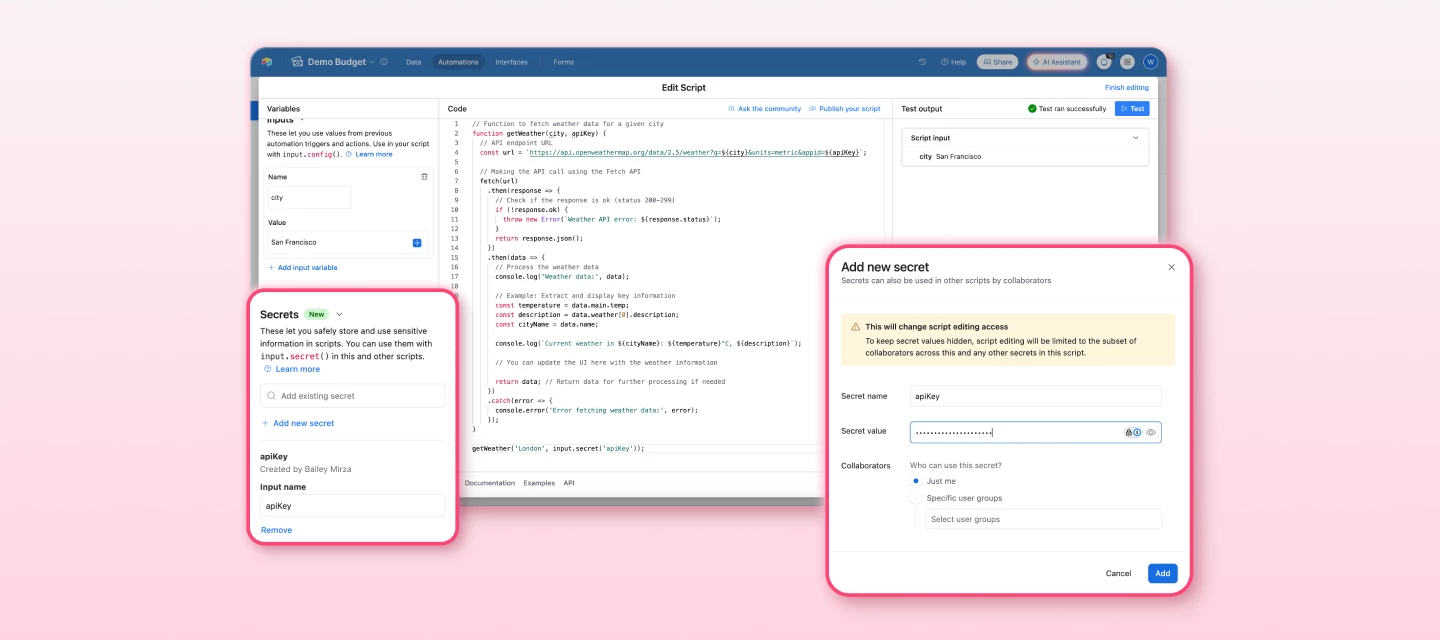Now Available for All Customers who can use Scripting
We're excited to announce the general availability of Secrets for Automations! You can now securely store and use sensitive information like API keys, passwords, and tokens in your Automation scripts without exposing them in plain text.
Why Secrets Matter
When connecting to external services in Run Script Actions, you may need to include sensitive credentials directly in your script code. This created potential security risks, as anyone with Editor access to your base could view these credentials.
With Secrets, you can now:
- Store sensitive information securely in Builder Hub
- Share access selectively with specific user groups (for customers on Business and above)
- Use the same secrets across multiple bases and automations
- Prevent unauthorized viewing of secrets or editing of scripts containing secrets
How Secrets Work
Creating and Managing Secrets
Secrets are stored in your Builder Hub, accessible from your account menu or directly at airtable.com/create/secrets. From here, you can:
- View all secrets you have access to
- Create new secrets with secure values
- Share secrets with specific user groups
- Edit secrets you've created
Using Secrets in Automations
When building a Run Script action, you'll now see a "Secrets" tab in the script editor where you can:
- Add existing secrets to your script
- Create new secrets directly from the script editor
- Access secret values in your code using input.secret('your-secret-name')
Enhanced Security Controls
Scripts containing secrets have special protections:
- Only users with access to all secrets in the script can edit it
- Other editors can still run the automation but cannot view secret values
- Secrets are automatically redacted from console outputs to prevent accidental exposure
Getting Started
To start using Secret Management:
- Navigate to any automation with a Run Script action
- Click on the "Secrets" tab in the script editor
- Add your first secret by clicking "Add new secret"
Alternatively, manage all your secrets centrally in the Builder Hub at airtable.com/create/secrets.
Looking Forward
We’re looking forward to seeing what you build with secrets! Over the next few weeks we will rollout further improvements to Builder Hub that will allow you to audit which scripts are using which secrets.




